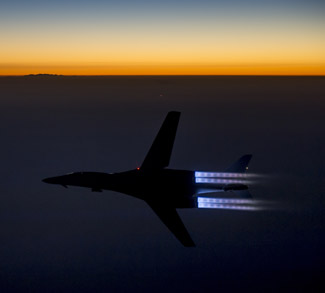On April 15, amid a normalization of ties between the United States and Cuba, President Barack Obama revoked Cuba’s status as a state sponsor of terrorism. Iran, Syria, and Sudan will continue to hold the dubious designation that until 2008 also included North Korea. Such lists have a problem: there is no clarity as to what constitutes a ‘terrorist,’ which allows for states and organizations to criminalize any action, dissent, or criticism as suits their purpose. It was not always so.
In the 1970s, terrorism was confined to specific groups like the Red Brigades in Italy, Sendero Luminoso in Peru or even the Ku Klux Klan in the United States. The term applied to groups and organizations worldwide espousing ideologies ranging from racial supremacy to left-wing extremism. Nobody had the exclusive ‘rights’ to the term. Today, the term terrorism has unfortunately become intrinsically associated with Islam. A stereotype has consolidated within Western culture that all Muslims are terrorists, suicide bombers with the gene for evil in their blood. Terrorist attacks are always tragedies that affect all of us. It is true that there seems to have been a concentration of ignoble acts over the past 30 years in the Middle East and North Africa, seemingly involving violence in the name of Islam; however, the media and world opinion have been rather myopic.
Islamic extremism is certainly dangerous, as is any extremism, but sometimes it is enhanced because it belongs to a different culture than ours in the West. For example, everyone will remember the attack on the Twin Towers in New York on 11 September 2001, attributed to Muslims, but what many do not know is that the second most violent attack in American history took place on April 19, 1995 in Oklahoma City, at the hands of Timothy McVeigh, a Christian, a former soldier, who planned and executed an attack in which 168 people lost their lives and another 800 were injured. The reasons, as stated by the same McVeigh, are to be found in the conduct of the US government, he claimed “increasingly hostile and therefore deserving of action strategically equivalent to those perpetrated by the United States against buildings in Serbia, Iraq or other nations.
Islam is a religion, which for most of the centuries it has been practiced, has professed tolerance. Its non-ecclesiastical structure has made it easy for some to interpret its tenets in varying and sometimes very intolerant ways, as Islamic State or al-Qaida have infamously demonstrated. Nevertheless, the West has been guilty itself of confusing what is written in the texts with the practices implemented by terrorist groups and by some exalted imam who use religion as a pretext to commit crimes against humanity. This is evidently unfair and wrong. Would we ever confuse the massacre of 2,900 Palestinian refugees at the Sabra and Shatila Camp in Beirut by Christian Phalangist militias in September 1982 with the words of Jesus Christ and his teachings of peace? It is very doubtful. The episode, classified by the Assembly of the United Nations as genocide, was documented by photographers who clearly described the perpetrators as Christians because they were brandishing crucifixes during the massacre.
Islam, which represents more than a billion people of every race, nationality and culture, as well as being a religion is also a lifestyle. The overwhelming majority of Muslims profess a religion of peace, mercy, and forgiveness that has nothing to do with the violence of Islamic State, or al-Shabaab in Somalia and Kenya, or Boko Haram. Moreover, only 18% of Muslims reside in the Arab world – the majority is scattered in every corner of the earth. Muslims believe in the chain of prophets starting with Adam and including Noah, Abraham, Ishmael, Isaac, Jacob, Joseph, Job, Moses, Aaron, David, Solomon, Elias, Jonah, John the Baptist and Jesus. When discussing Islam, therefore, it is important to avoid making the now all too common link to terrorism. Perhaps it is even wrong to speak of “Islamic terrorism,” especially as the modern manifestations of Islamic extremism have more to do with the West than with Mecca, having their roots in the Afghanistan of the late eighties and early nineties, with the full financial and military support of the United States and some Arab Gulf countries.
The West needs no lessons in using religion for political repression and massacring civilians. From the austerity and iconoclasm of the middle ages to the Inquisition that sentenced peaceful philosophers like Giordano Bruno to be burned alive, to Oliver Cromwell in 17th century Britain and to the colonization of Africa, just for starters, the West has been more than an inspiration for what we call Islamic terrorists. And Christian terrorism, not just Sabra and Shatila, has not been lost in history. It is very much alive today. Christian ‘terrorists’ read the Bible. They hunt demons and abortionists. And dream of a society based on the Ten Commandments. From the US to China: Christian groups are ready to kill.
Extremism is not a prerogative of Islam as suggested by a study carried out by the SPLC (Southern Poverty Law Center), an American organization that, among other things, specializes in the identification of so-called hate groups, or those aggregations touting ideas of racial or religious hatred. According to the SPLC, between April 2009 and February 2015 on US soil more people have died because of Christian, rather than Muslim, fanaticism. But there have been victims of Christian fanatics worldwide. Terrorism can be fomented by warped interpretations of the Quran just as by equally warped interpretations of the Bible and the Book of Revelation. Cases in which Christians, far from being the victims, become the executioners.
It’s just that it has not occurred to anyone that Christians should be blaming themselves for some of the most violent events in history – not including the world wars, just to mention two, of the past century. More recently and in areas not far from where groups claim allegiance to al-Qaida or Islamic State, Christian Hutus exterminated 800,000 Tutsis in Rwanda over a two-month period, in a war described as a genocide by the United Nations, without making any distinction between men, women and children. The Catholic Church obviously knew and there was a clear, if limited, involvement of its prelates, some of whom have been arrested and tried and others transferred to Europe such as Father Wenceslas Munyeshyaka, who fled to France to void serving his sentence.
Father Wenceslas, who was photographed several times brandishing a gun and colluding with Hutu militias was convicted in Rwanda “in absentia” for genocide and rape. The International Criminal Court of Rwanda has sought and failed to obtain his extradition, but the French Catholic church has always refused. This is not an isolated case. Father Athanase Seromba personally ordered the demolition by bulldozers of his church where he had just bolted the doors, trapping the 2,000 people he had invited to “protect.”
In discussions of Boko Haram in Nigeria or al-Shabaab in Kenya and Somalia, murder, kidnappings, village raids and the use of child soldiers and sex slaves has been widely documented. Little is said about the very Christian group that ‘pioneered’ such tactics in northern Uganda and the Democratic Republic of Congo. The Lord’s Resistance Army (LRA), first known as the United Holy Salvation Army and Uganda Christian Army, led by Joseph Kony, is a military and religious movement formed by Christians in 1987 and accused of crimes against humanity – murder, kidnappings, rapes, slavery and torture. The LRA’s stated purpose is to fight Islam and establish a theocracy in Uganda based on the Ten Commandments.
The LRA has been directly responsible for an unknown number of murders (at least 100,000) and the displacement of millions over the years. Its leaders have been accused of crimes against humanity, including killings, abductions, mutilations, torture, rapes, and enslavement for sexual purposes. Joseph Kony has proclaimed himself a spokesman of God and the medium of the Holy Spirit. The LRA emerged from the armed resistance movement active in northern Uganda, following the overthrow of the government led by Acholi Tiko Okello at the hands of Yoweri Museveni, founder of the National Resistance Army. The ideology of the group is a mixture of syncretism, traditional mysticism of the African peoples, Acholi nationalism and Christian fundamentalism. Similar groups, in February 2014, were guilty of massacring Muslim Balaka communities in the Central African Republic. Last January alone the victims are estimated at over 1,000, but at the end of the counts of this conflict that has lasted for years the victims are likely to be tens of thousands.
From America to Africa, up to the Far East Asia, the fundamentalists ‘of the cross’ are organized in terrorist groups. They fight against abortion, interracial marriages, homosexuals and other cults. Sometimes even against fellow Christians who do not recognize their fundamentalist vision. But, apart from acting blind and deaf to the suffering caused by Christian terrorism, the West also fails to recognize Muslims’ own responses and rejection of their fundamentalist manifestations.
The Shiite Lebanese Hezbollah movement’s militia, which many Western countries, including the United States and Canada, insist on branding a terrorist organization ignoring the complexities of 20th-century Lebanese politics, has been at the forefront of the struggle against Islamic State and al-Qaida offshoots such as the al-Nusra Front. Hezbollah has weakened terrorist groups in the strategic area of Quseir and in the mountain range of Qalamoun in Syria. Hezbollah’s leader, Hassan Nasrallah, has recently pointed out: “The equation of army-people-resistance was able to liberate our land, where the world had failed. The resistance, next to the army and the people, has helped protect the borders of Lebanon. That’s why Hezbollah not only should not be considered a terrorist movement, it should be recognized as a subject, in the Arab world, fighting all forms of terrorism and fundamentalism, which it does with the support of the people.
From the beginning, the civil war in Syria, aided and abetted by the West, which at one point in 2013 seemed ready to launch missile strikes against Damascus, has stirred sectarian divisions and threatened the region and the world. To include Hezbollah in the same ranks as al-Qaeda, al Nusra and Islamic State without considering the former’s considerable political relevance is hypocrisy. Similarly, in Yemen, the Houthi ‘rebels, against whom Saudi Arabia, Egypt and Gulf allies are fighting, defeated the Salafi movement that morphed into the now notorious terrorist groups proliferating in southwestern Yemen, such as al-Qaeda in the Arabian Peninsula (AQAP). Finally, it should be stressed that the fundamentalist groups and radicals have no support from political groups, parties and movements in the Middle East, perhaps even less so today than it was the case through the 1960s-1980s, when social and nationalistic aspirations were often championed by secular terrorism. Islam contains within it, as a faith and as a society, the most effective tools to challenge its own fundamentalisms.



